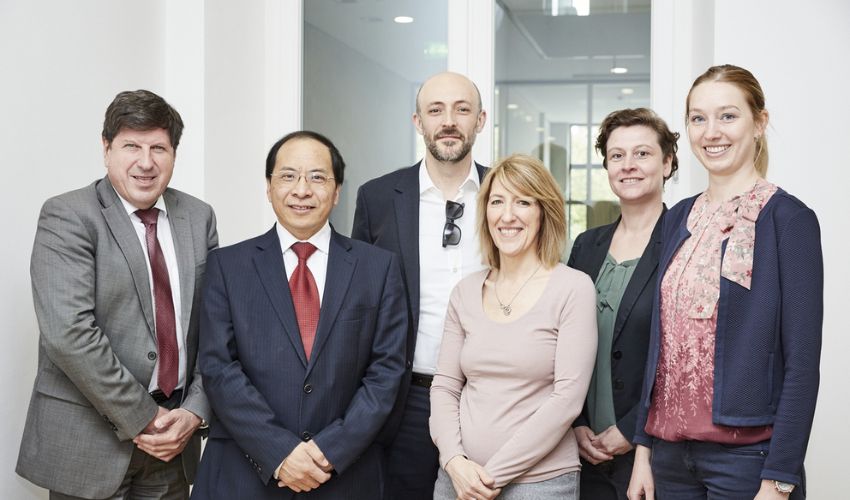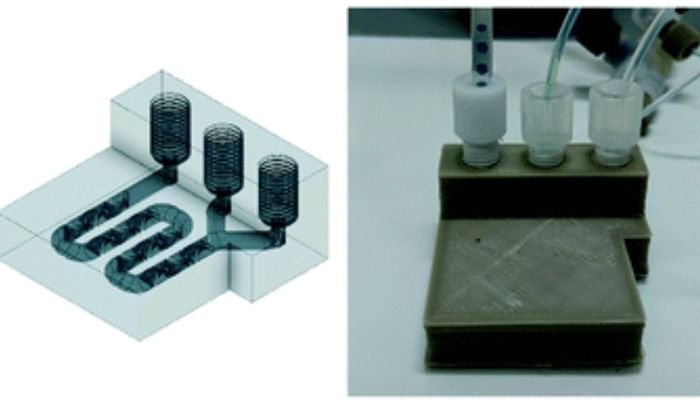International Research Collaboration for Manufacture of Plastics and Polymers

International collaboration is a cornerstone of almost all scientific research; the opportunity to share techniques, expertise, and ideas is essential to discovery and development. To no surprise, 3D printing is no exception to this rule. In a recent example of this, The University of Leeds, UK, and Karlsruhe Institute of Technology (KIT), Germany, have furthered their scientific collaboration with the announcement of a new project intending to study how machine learning can be combined with 3D-printed reactors. They hope that this could lead to the development of high-quality polymers and plastics.
This 3D printing research project was originally carried out at Leeds; its equivalent parts are now under construction and preliminary tests at KIT. The collaboration involves lots of international travel and back-and-forth: a PhD researcher from KIT has spent time in Leeds to learn about the software and techniques. They will then use these technologies to make 3D printed parts at KIT, to then be tested back in Leeds. The two institutions began collaborating many years ago, and in 2019 signed a Memorandum of Understanding as a symbol of their commitment to the strengthening of international cooperation and research. They have a number of different projects together, from studies in climate change, AI and robotics, advanced materials, and data analysis.

3D printed reactors such as this one can be used for flow chemistry – when a chemical reaction is run continuously as opposed to in batches. (Photo credit: Reaction Chemistry Engineering, 2020,5, 728-735)
Professor Thomas Hirth, Vice-President for Transfer and International Affairs at KIT, said: “The University of Leeds is a very important partner of KIT in the UK and Europe. This is reflected by the large range of topics covered by our increasingly close collaboration in research, academic education and transfer.”
Similar examples of scientific collaborations between industry and research have included the work of Photocentric, granted £1 million by the UK Research and Innovation Agency to develop a sustainable manufacturing method named LEAD (Low Energy Autonomous Digital Factory). In terms of work across borders, researchers in South Korea are working to standardize medical 3D printing and scanning on an international basis. They hope to create global conventions to improve quality all over the world. For more information about the collaboration between the University of Leeds and Karlsruhe Institute of Technology, you can read the press release from the University of Leeds HERE.

The team are researching the manufacture of polymers with AI and 3D printed reactors. (Photo credit: Roland Berger)
What do you think of this international collaboration to use 3D printing technology to improve polymers and plastics? Let us know in a comment below or on our LinkedIn, Facebook, and Twitter pages! Don’t forget to sign up for our free weekly Newsletter here, the latest 3D printing news straight to your inbox! You can also find all our videos on our YouTube channel.
*Cover photo shows the 2018 delegation of Leeds professors who visited KIT with a focus on future cooperation. Credit: Karlsruhe Institute of Technology






